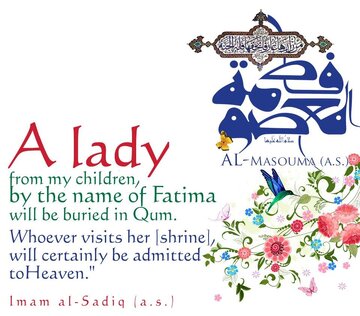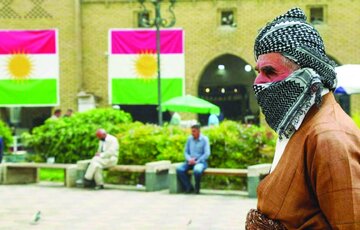AhlulBayt News Agency (ABNA): Following the developments in Afghanistan last year and the President Ashraf Ghani's fleeing from the country and the fall of the Kabul government and Taliban takeover of the power and the announcement of the Islamic Emirate foundation in this country, there have been different approaches among Afghan and foreign experts about the discourse and policy the group would apply in its governance, with some arguing that the Taliban leaders after 20 years in exile and experience they built would no longer turn to violent and authoritarian approaches and rather would seek cohesion and unity among various sectarian groups and pave the way for an inclusive government.
Others, however, believe that, given the ruling ideology of the group, the Taliban would take the same path as before by seizing power and consolidating it, and would not allow other groups in the governance.
These two groups of experts are monitoring the behavior and discourse of the Taliban concerning people to see if the group would continue the violent way of the past rule or in order to attract people and gain internal, regional, and international legitimacy it would entertain reforms and build trust. Not long before the Taliban seized the power and its government is yet to gain domestic and international legitimacy, it resorted to abusive and violent ways like in the past 20 years, triggering public reactions. Contrary to its commitments at Doha meetings, the group recently issued a set of restrictive laws and regulations in various fields. These restrictions affect all social, political, cultural, educational and economic areas of public life. Needless to say, the difference between the past and present rule of the Taliban is that this time, contrary to the past, the Taliban is applying its rules slowly and systemically and pushes the people under the obligation of respecting them.
In general, the Taliban's restrictions can be divided into different categories, and in each category the restrictions have been gradually imposed and the voices of dissent have been stifled. Restrictive laws were enacted as the Taliban rulers upon their arrival in Kabul declared support for free media and a general amnesty, stressing that women wound no longer be under restrictions of the past. However, a few days after their rule started, they introduced a limiting regime outlawing all kinds of gatherings, protests, and rallies, while giving green light to rallies organized by their supports.
This field research brings in spotlight the restrictive laws issued by the Taliban over the past 7 months of their rule. Here are some of them:
1. Contradictory instructions to the media
On September 20, last year, the Taliban, in its first action in the field of media, approved a nine-point instruction list and obliged the media to observe the following:
- Material that is in conflict with Islam should not be published.
- Do not insult national figures in media publishing.
- Do not insult national and personal privacy.
- Media and journalists should not distort reality in news content.
- Journalists should consider the professional principles of journalism in their writing.
- The media should be balanced in their publications.
- Matters that are not known for accuracy and unconfirmed by the authorities should be published with conservation.
- The media should be neutral and publish what is true in the news.
- The government's press center would be formed in a specific form for media outlets and journalists to work with.
Following these instructions, the group issued an 8-point instruction list, showing that it violated the earlier instructions and introduced new limitations. According to the new regulations, foreign shows, series, and movies are banned on internal televisions. Moreover, women are banned from acting in the films and full hejab codes are obligatory for the female presenters on media. Also, the media were asked to act within Islamic frameworks and Zabihullah Mujahed, the spokesmam to the group, said that the "Islamic codes and Afghan values" should be considered in media program productions.
According to a report by Reporters without Borders, because of the Taliban restrictions, out of 543 media outlets registered in the country, just 312 have been active by February, meaning that in 3 months, 43 percent of Afghanistan media halted activity. The report also informed that 80 percent of female journalists lost their jobs after Taliban takeover and in many provinces there is not even a single female journalist.
Media restrictions were not limited to this, and the Taliban beat journalists, detained them, and even killed them. In August, reporter of Etilaatroz newspaper in Dasht-e-Barchi of Kabul was detained and, then reportedly tortured, while reporting from women's protests.
In its latest stance on the Taliban's social crackdown, Amnesty International has expressed concern over the continued arbitrary detention of journalists and rights advocates in Afghanistan and called for an end to the violence against journalists. The organization says, in the first two months of 2022, 60 people, including children, were detained and then disappeared by the Taliban.
2. Cracking down on civil activists
Upon its seizure of Kabul, the Taliban began mass detentions targeting journalists, civil activists, women rights activists, political experts, and university professors. Here are some examples:
Faizullah Jalal, a professor at Kabul University who criticized the Taliban in a TV interview, was arrested after the interview and released under international community and internal pressures after a few days of detention.
Tamana Zaryab and Parvaneh Ibrahim Kheyl, two female activists, were also arrested and disappeared. Their offenses, according to the Taliban, were participation in women's protests against Taliban rule and arrangement of rallies.
Seyyed Baqer Mohseni, a university professor and political analyst, was also detained and tortured for three days for criticism against the Taliban in the media. He has not spoken to media since his release.
The managing director of Tolo News Network and Bahram Aman, the political presenter of this TV station, were also arrested by the Taliban. Since their release, they have not disclosed the treatment of them during the detention or what the group demanded from them.
The head of Noorin TV was also arrested without being charged and transferred to an unknown location. The fate of this individual is yet to be known.
3. Anti-women restrictions
Under the Taliban rule, women are banned from working in government offices and schools closed their doors to female students, while the Taliban had earlier vowed that girls would be allowed to continue their education in the new school year. However, on March 24 and after vacations, the girls above sixth degree were told to stay at home "until further notice." The ministry of education said the ban was because their hijab codes was not designed to "suit Afghan morale."
Restrictions on women in universities have increased, too, and boys and girls were separated in public university classes. Girls whose hijab is not meeting Taliban standards are expelled in an apparant act of official retribution.
In addition, the ministry for the propagatioen of virtue and the prevention of vice issued a five-article instruction on women and urban taxis. According to the directive, drivers are not allowed to provide services to women who do not wear the hijab properly and are not accompanied by a legal chaperone. Also, the ministry told drivers they should not admit women without male family member seeking to travel beyond 72 kilometres. The women were also banned from flights without a male family member company. According to the reports, so far Kabul and Mazar-i-Sharif airports have not allowed women to fly out of the county.
4. Restrictive social instructions
With the start of new rule of the Taliban, its leadership announced a public amnesty and asked people, especially the political, scientific, university, and religious communities, to return to their normal life. Their empty promises only sought to calm the turbulence the country witnessed upon their takeover. Very shortly later, however, not only these promises proved empty but also the Taliban issued restrictive laws, returning the country to the black rule of pre-occupation in the 1990s by creating an atmosphere of terror, detention, threats, and even killing. The behavior motivated massive migration out of the country legally and illegally, with those remaining inside having no choice but accepting the plight of living under the Taliban rule.
More than 6 million people have applied for passports and visas in addition to the large number of people who have left Afghanistan in the past seven months, according to reports. These behaviors lead to the notion that the Taliban have no belief in human rights, women rights, civil freedoms, and public amnesty. Here are some of their social decrees:
1- Ordering barbers not to shave or trim beards or cut the hair Western-style.
2. Male university students were recommended to "replace Western cloths with national ones".
3. Banning music and its publishing and its airing on media
5. Taliban and constitution
After establishing itself in Kabul, the Taliban leadership said the constitution approved under King Mohammed Zahir Shah, who ruled Afghanistan from 1933 to 1973, would make the basis of administration of the country. However, their comments showed that they have no belief in this issue and they adopt the laws announced by their leader Mullah Hibatullah Akhundzada. When they are asked about the constitutional basis of their rule, they refer to Quranic laws without elaboration.
6. Taliban and music
This group does not approve of any kind of music and with assumption of the power by the group, the music industry went off in the country and the musicians and singers fled the country or forced to isolation internally. People across the country, mainly the drivers, were warned not to play music. TV stations in the country were told not to air music material. Molawi Naeem al-Haq Haqqani, the head of Information and Culture Office in Herat province, said in an interview with the private media "Asr" that Hanafi jurisprudence has been fully defined, and that "we still have a duty to have our point of view within that framework."
"In our religion, music is forbidden and any kind of music is forbidden. Music has no place in the religion of Islam," he told the outlet.
7. Taliban and congregational prayer
In the past rule and presently, the Taliban insist that all should attend congregational prayer and those absent from the religious event are fined. Reports from around the country hold that "propagation of virtue and prevention of vice teams", using car-mounted loudspeakers in the streets, encourage people to attend prayers.
8. Taliban and photography and painting
According to Taliban instructions, people are asked to abandon all kinds of photography and paintings. There are even reports that the it barred photography and filming. The Taliban's draconian rules on this art have caused concern for those interested.
9. Taliban and Nowruz
Molawi Mohammad Sadegh Akef Mohajer, spokesman for the ministry of information and guidance, said that Nowruz, a Persian celebration of new year and spring, is not in Islam.
"There is no other holiday called Nowruz in Islam," he said. "Nowruz is for the Majuses and I do not see the need to celebrate it," he continued referring to the ancient Persians with Zoroastrian faith.
Asked if the three-day Nowruz vacation would remain in place under the Taliban rule, he left the decision to the ministry of labor and social affairs. "But very likely there would not be vacations in these three days," he continued.
Concerning the measures of the ministry of information and guidance, Mohajer said that the ministry has played a big role in the new administration and during the past six months "we restored many Islamic laws including ban on alcoholic drinks, public use of drugs, and dance of women in Public. "The ministry has much to do and would report to the people."
10. Home-to-home search
Following clashes in Kabul and some other cities, the Taliban launched home searches of political, religious, and cultural leaders under the pretext of crackdown on armed groups, with its media reports suggesting discovery of massive amounts of arms and ammunition. Some reports held that the process went so inappropriate and violence affected even those figures announcing readiness to work with the group. Other reports also talked about looting of the assets of people during the searches. The search program in addition to bringing a sense of insecurity to non-Pashtun communities prompted the take that the group seeks to disarm the past opposition groups and figures under the ruse of fight against armed groups. Another action was seizure of houses and offices of political figures and parties, justifying its action by arguing that they were indebted to the electricity company.
11. Purges in state offices
With its establishment, the Taliban launched a massive purge campaign in state institutions under the cover of dismissing unwanted figures. The campaign saw removal of Persian-speaking staff and circles related to them. A large number of judges, including Shiite judges or employees in Shiite-majority provinces were dismissed in an apparent sectarian purge. To cement their dominance, the Taliban dissolved some ministries they saw redundant and created new ones.





